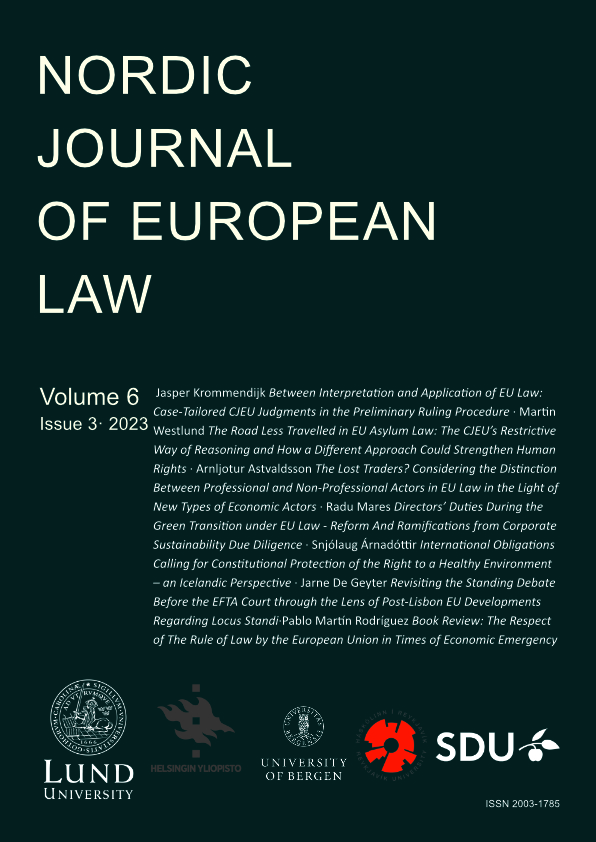The Road Not Taken The CJEU’s Restrictive Way of Reasoning in Asylum Cases and How it Could Change in Light of the Free Movement Case Law
Main Article Content
Abstract
Many asylum cases present an opportunity for the European Court of Justice to promote and protect EU values such as human rights and the rule of law. Yet, in central issues on the EU asylum system, the Court has opted for careful and formal readings of law rather than exploring such perspectives. The Court’s legal reasoning in asylum is examined by case analyses in NF v Council on the EU-Turkey Statement, X and X on humanitarian visas, and A.S. and Jafari on the EU asylum system. In free movement, the Court is considered a key driver of integration, whereas, in asylum law, it is seen as more restrictive. Rather than promoting EU integration and ensuring human rights protections, the Court grants discretion to the legislator or the executive. There are legitimate reasons why a different path has been taken in asylum. However, as a more extensive and dynamic method of interpretation could increase human rights protections, it is relevant to reassess the position of the Court in asylum law.
Article Details

This work is licensed under a Creative Commons Attribution-NonCommercial-NoDerivatives 4.0 International License.

